Automate your data processing pipeline in 9 steps
Learn how to build an n8n workflow that processes text, stores data in two databases, and sends messages to Slack.




Unlock MongoDB’s full potential with n8n, connecting it to similar Development apps and over 1000 other services. Automate productivity workflows by scheduling tasks, managing project timelines, and tracking progress across platforms. Create adaptable and scalable workflows between MongoDB and your stack. All within a building experience you will love.
 Google Sheets
and MongoDB integration
Google Sheets
and MongoDB integration Telegram
and MongoDB integration
Telegram
and MongoDB integration MySQL
and MongoDB integration
MySQL
and MongoDB integration Slack
and MongoDB integration
Slack
and MongoDB integration Postgres
and MongoDB integration
Postgres
and MongoDB integration HubSpot
and MongoDB integration
HubSpot
and MongoDB integration Redis
and MongoDB integration
Redis
and MongoDB integration RabbitMQ
and MongoDB integration
RabbitMQ
and MongoDB integration OpenAI
and MongoDB integration
OpenAI
and MongoDB integration HTTP Request
and MongoDB integration
HTTP Request
and MongoDB integration Webhook
and MongoDB integration
Webhook
and MongoDB integration Discord
and MongoDB integration
Discord
and MongoDB integration Notion
and MongoDB integration
Notion
and MongoDB integration Gmail
and MongoDB integration
Gmail
and MongoDB integration Airtable
and MongoDB integration
Airtable
and MongoDB integration Google Drive
and MongoDB integration
Google Drive
and MongoDB integration GitHub
and MongoDB integration
GitHub
and MongoDB integration Google Calendar
and MongoDB integration
Google Calendar
and MongoDB integration Microsoft SQL
and MongoDB integration
Microsoft SQL
and MongoDB integration OpenWeatherMap
and MongoDB integration
OpenWeatherMap
and MongoDB integration GraphQL
and MongoDB integration
GraphQL
and MongoDB integration X (Formerly Twitter)
and MongoDB integration
X (Formerly Twitter)
and MongoDB integration Mautic
and MongoDB integration
Mautic
and MongoDB integration Pushover
and MongoDB integration
Pushover
and MongoDB integration SendGrid
and MongoDB integration
SendGrid
and MongoDB integration Jira Software
and MongoDB integration
Jira Software
and MongoDB integration ClickUp
and MongoDB integration
ClickUp
and MongoDB integration Trello
and MongoDB integration
Trello
and MongoDB integration AWS S3
and MongoDB integration
AWS S3
and MongoDB integration Twilio
and MongoDB integration
Twilio
and MongoDB integration Todoist
and MongoDB integration
Todoist
and MongoDB integration Pipedrive
and MongoDB integration
Pipedrive
and MongoDB integration Nextcloud
and MongoDB integration
Nextcloud
and MongoDB integration Microsoft Outlook
and MongoDB integration
Microsoft Outlook
and MongoDB integration Mattermost
and MongoDB integration
Mattermost
and MongoDB integration Facebook Graph API
and MongoDB integration
Facebook Graph API
and MongoDB integration WooCommerce
and MongoDB integration
WooCommerce
and MongoDB integration NocoDB
and MongoDB integration
NocoDB
and MongoDB integration Google Docs
and MongoDB integration
Google Docs
and MongoDB integration S3
and MongoDB integration
S3
and MongoDB integration Spotify
and MongoDB integration
Spotify
and MongoDB integration ActiveCampaign
and MongoDB integration
ActiveCampaign
and MongoDB integration MQTT
and MongoDB integration
MQTT
and MongoDB integration Home Assistant
and MongoDB integration
Home Assistant
and MongoDB integration WhatsApp Business Cloud
and MongoDB integration
WhatsApp Business Cloud
and MongoDB integration Google Contacts
and MongoDB integration
Google Contacts
and MongoDB integration YouTube
and MongoDB integration
YouTube
and MongoDB integration Supabase
and MongoDB integration
Supabase
and MongoDB integration RocketChat
and MongoDB integration
RocketChat
and MongoDB integration TheHive
and MongoDB integration
TheHive
and MongoDB integration Salesforce
and MongoDB integration
Salesforce
and MongoDB integration Microsoft Teams
and MongoDB integration
Microsoft Teams
and MongoDB integration Mailgun
and MongoDB integration
Mailgun
and MongoDB integration Matrix
and MongoDB integration
Matrix
and MongoDB integration Dropbox
and MongoDB integration
Dropbox
and MongoDB integration Google Cloud Firestore
and MongoDB integration
Google Cloud Firestore
and MongoDB integration Reddit
and MongoDB integration
Reddit
and MongoDB integration Mailchimp
and MongoDB integration
Mailchimp
and MongoDB integration Asana
and MongoDB integration
Asana
and MongoDB integration Wordpress
and MongoDB integration
Wordpress
and MongoDB integration Gotify
and MongoDB integration
Gotify
and MongoDB integration Mailjet
and MongoDB integration
Mailjet
and MongoDB integration Elasticsearch
and MongoDB integration
Elasticsearch
and MongoDB integration Google BigQuery
and MongoDB integration
Google BigQuery
and MongoDB integration Stripe
and MongoDB integration
Stripe
and MongoDB integration Microsoft OneDrive
and MongoDB integration
Microsoft OneDrive
and MongoDB integration Microsoft Excel 365
and MongoDB integration
Microsoft Excel 365
and MongoDB integration Monday.com
and MongoDB integration
Monday.com
and MongoDB integration CoinGecko
and MongoDB integration
CoinGecko
and MongoDB integration Zendesk
and MongoDB integration
Zendesk
and MongoDB integration APITemplate.io
and MongoDB integration
APITemplate.io
and MongoDB integration Line
and MongoDB integration
Line
and MongoDB integration AWS Lambda
and MongoDB integration
AWS Lambda
and MongoDB integration Shopify
and MongoDB integration
Shopify
and MongoDB integration Kafka
and MongoDB integration
Kafka
and MongoDB integration NASA
and MongoDB integration
NASA
and MongoDB integration GitLab
and MongoDB integration
GitLab
and MongoDB integration Brevo
and MongoDB integration
Brevo
and MongoDB integration Customer Datastore (n8n training)
and MongoDB integration
Customer Datastore (n8n training)
and MongoDB integration Microsoft To Do
and MongoDB integration
Microsoft To Do
and MongoDB integration Pushbullet
and MongoDB integration
Pushbullet
and MongoDB integration LinkedIn
and MongoDB integration
LinkedIn
and MongoDB integration AWS SES
and MongoDB integration
AWS SES
and MongoDB integration Webflow
and MongoDB integration
Webflow
and MongoDB integration Odoo
and MongoDB integration
Odoo
and MongoDB integration SeaTable
and MongoDB integration
SeaTable
and MongoDB integration Phantombuster
and MongoDB integration
Phantombuster
and MongoDB integration Bubble
and MongoDB integration
Bubble
and MongoDB integration Google Tasks
and MongoDB integration
Google Tasks
and MongoDB integration AWS DynamoDB
and MongoDB integration
AWS DynamoDB
and MongoDB integration DeepL
and MongoDB integration
DeepL
and MongoDB integration Google Analytics
and MongoDB integration
Google Analytics
and MongoDB integration Coda
and MongoDB integration
Coda
and MongoDB integration Zoho CRM
and MongoDB integration
Zoho CRM
and MongoDB integration Google Translate
and MongoDB integration
Google Translate
and MongoDB integration Google Chat
and MongoDB integration
Google Chat
and MongoDB integration Clockify
and MongoDB integration
Clockify
and MongoDB integration Raindrop
and MongoDB integration
Raindrop
and MongoDB integration Zoom
and MongoDB integration
Zoom
and MongoDB integration Snowflake
and MongoDB integration
Snowflake
and MongoDB integration Dropcontact
and MongoDB integration
Dropcontact
and MongoDB integration Grist
and MongoDB integration
Grist
and MongoDB integration Cortex
and MongoDB integration
Cortex
and MongoDB integration Lemlist
and MongoDB integration
Lemlist
and MongoDB integration Strapi
and MongoDB integration
Strapi
and MongoDB integration Bitly
and MongoDB integration
Bitly
and MongoDB integration Google Slides
and MongoDB integration
Google Slides
and MongoDB integration ERPNext
and MongoDB integration
ERPNext
and MongoDB integration Google Workspace Admin
and MongoDB integration
Google Workspace Admin
and MongoDB integration Wise
and MongoDB integration
Wise
and MongoDB integration Yourls
and MongoDB integration
Yourls
and MongoDB integration Philips Hue
and MongoDB integration
Philips Hue
and MongoDB integration Xero
and MongoDB integration
Xero
and MongoDB integration AWS SNS
and MongoDB integration
AWS SNS
and MongoDB integration Freshdesk
and MongoDB integration
Freshdesk
and MongoDB integration UptimeRobot
and MongoDB integration
UptimeRobot
and MongoDB integration One Simple API
and MongoDB integration
One Simple API
and MongoDB integration Pushcut
and MongoDB integration
Pushcut
and MongoDB integration Zulip
and MongoDB integration
Zulip
and MongoDB integration Ghost
and MongoDB integration
Ghost
and MongoDB integration QuickBooks Online
and MongoDB integration
QuickBooks Online
and MongoDB integration Wekan
and MongoDB integration
Wekan
and MongoDB integration Customer.io
and MongoDB integration
Customer.io
and MongoDB integration Zammad
and MongoDB integration
Zammad
and MongoDB integration Metabase
and MongoDB integration
Metabase
and MongoDB integration Jenkins
and MongoDB integration
Jenkins
and MongoDB integration urlscan.io
and MongoDB integration
urlscan.io
and MongoDB integration PagerDuty
and MongoDB integration
PagerDuty
and MongoDB integration Customer Messenger (n8n training)
and MongoDB integration
Customer Messenger (n8n training)
and MongoDB integration MailerLite
and MongoDB integration
MailerLite
and MongoDB integration Linear
and MongoDB integration
Linear
and MongoDB integration Hacker News
and MongoDB integration
Hacker News
and MongoDB integration FileMaker
and MongoDB integration
FileMaker
and MongoDB integration seven
and MongoDB integration
seven
and MongoDB integration Sendy
and MongoDB integration
Sendy
and MongoDB integration Harvest
and MongoDB integration
Harvest
and MongoDB integration Taiga
and MongoDB integration
Taiga
and MongoDB integration Mindee
and MongoDB integration
Mindee
and MongoDB integration Mandrill
and MongoDB integration
Mandrill
and MongoDB integration AWS SQS
and MongoDB integration
AWS SQS
and MongoDB integration Google Cloud Realtime Database
and MongoDB integration
Google Cloud Realtime Database
and MongoDB integration Keap
and MongoDB integration
Keap
and MongoDB integration Grafana
and MongoDB integration
Grafana
and MongoDB integration Onfleet
and MongoDB integration
Onfleet
and MongoDB integration Discourse
and MongoDB integration
Discourse
and MongoDB integration Strava
and MongoDB integration
Strava
and MongoDB integration Medium
and MongoDB integration
Medium
and MongoDB integration Bannerbear
and MongoDB integration
Bannerbear
and MongoDB integration ConvertKit
and MongoDB integration
ConvertKit
and MongoDB integration Magento 2
and MongoDB integration
Magento 2
and MongoDB integration HighLevel
and MongoDB integration
HighLevel
and MongoDB integration Box
and MongoDB integration
Box
and MongoDB integration Invoice Ninja
and MongoDB integration
Invoice Ninja
and MongoDB integration Google Cloud Natural Language
and MongoDB integration
Google Cloud Natural Language
and MongoDB integration ServiceNow
and MongoDB integration
ServiceNow
and MongoDB integration AWS Transcribe
and MongoDB integration
AWS Transcribe
and MongoDB integration uProc
and MongoDB integration
uProc
and MongoDB integration HelpScout
and MongoDB integration
HelpScout
and MongoDB integration TimescaleDB
and MongoDB integration
TimescaleDB
and MongoDB integration MessageBird
and MongoDB integration
MessageBird
and MongoDB integration BambooHR
and MongoDB integration
BambooHR
and MongoDB integration Sentry.io
and MongoDB integration
Sentry.io
and MongoDB integration AWS Textract
and MongoDB integration
AWS Textract
and MongoDB integration Segment
and MongoDB integration
Segment
and MongoDB integration Splunk
and MongoDB integration
Splunk
and MongoDB integration QuestDB
and MongoDB integration
QuestDB
and MongoDB integration Intercom
and MongoDB integration
Intercom
and MongoDB integration Google Cloud Storage
and MongoDB integration
Google Cloud Storage
and MongoDB integration Vonage
and MongoDB integration
Vonage
and MongoDB integration PostBin
and MongoDB integration
PostBin
and MongoDB integration Plivo
and MongoDB integration
Plivo
and MongoDB integration Clearbit
and MongoDB integration
Clearbit
and MongoDB integration Rundeck
and MongoDB integration
Rundeck
and MongoDB integration Adalo
and MongoDB integration
Adalo
and MongoDB integration AWS Comprehend
and MongoDB integration
AWS Comprehend
and MongoDB integration Google Perspective
and MongoDB integration
Google Perspective
and MongoDB integration Paddle
and MongoDB integration
Paddle
and MongoDB integration DHL
and MongoDB integration
DHL
and MongoDB integration Freshservice
and MongoDB integration
Freshservice
and MongoDB integration SIGNL4
and MongoDB integration
SIGNL4
and MongoDB integration Quick Base
and MongoDB integration
Quick Base
and MongoDB integration Peekalink
and MongoDB integration
Peekalink
and MongoDB integration Webex by Cisco
and MongoDB integration
Webex by Cisco
and MongoDB integration Google Ads
and MongoDB integration
Google Ads
and MongoDB integration Contentful
and MongoDB integration
Contentful
and MongoDB integration AWS Rekognition
and MongoDB integration
AWS Rekognition
and MongoDB integration Oura
and MongoDB integration
Oura
and MongoDB integration Cockpit
and MongoDB integration
Cockpit
and MongoDB integration HaloPSA
and MongoDB integration
HaloPSA
and MongoDB integration Monica CRM
and MongoDB integration
Monica CRM
and MongoDB integration Marketstack
and MongoDB integration
Marketstack
and MongoDB integration Kitemaker
and MongoDB integration
Kitemaker
and MongoDB integration Autopilot
and MongoDB integration
Autopilot
and MongoDB integration MISP
and MongoDB integration
MISP
and MongoDB integration Freshworks CRM
and MongoDB integration
Freshworks CRM
and MongoDB integration Agile CRM
and MongoDB integration
Agile CRM
and MongoDB integration Beeminder
and MongoDB integration
Beeminder
and MongoDB integration Orbit
and MongoDB integration
Orbit
and MongoDB integration E-goi
and MongoDB integration
E-goi
and MongoDB integration Hunter
and MongoDB integration
Hunter
and MongoDB integration Action Network
and MongoDB integration
Action Network
and MongoDB integration MSG91
and MongoDB integration
MSG91
and MongoDB integration Emelia
and MongoDB integration
Emelia
and MongoDB integration Microsoft Graph Security
and MongoDB integration
Microsoft Graph Security
and MongoDB integration AMQP Sender
and MongoDB integration
AMQP Sender
and MongoDB integration LingvaNex
and MongoDB integration
LingvaNex
and MongoDB integration Automizy
and MongoDB integration
Automizy
and MongoDB integration CrateDB
and MongoDB integration
CrateDB
and MongoDB integration PostHog
and MongoDB integration
PostHog
and MongoDB integration PayPal
and MongoDB integration
PayPal
and MongoDB integration Chargebee
and MongoDB integration
Chargebee
and MongoDB integration Bitwarden
and MongoDB integration
Bitwarden
and MongoDB integration Affinity
and MongoDB integration
Affinity
and MongoDB integration KoBoToolbox
and MongoDB integration
KoBoToolbox
and MongoDB integration ProfitWell
and MongoDB integration
ProfitWell
and MongoDB integration Demio
and MongoDB integration
Demio
and MongoDB integration Microsoft Dynamics CRM
and MongoDB integration
Microsoft Dynamics CRM
and MongoDB integration Twist
and MongoDB integration
Twist
and MongoDB integration Google Books
and MongoDB integration
Google Books
and MongoDB integration Venafi TLS Protect Cloud
and MongoDB integration
Venafi TLS Protect Cloud
and MongoDB integration SyncroMSP
and MongoDB integration
SyncroMSP
and MongoDB integration AWS Certificate Manager
and MongoDB integration
AWS Certificate Manager
and MongoDB integration SecurityScorecard
and MongoDB integration
SecurityScorecard
and MongoDB integration Disqus
and MongoDB integration
Disqus
and MongoDB integration Salesmate
and MongoDB integration
Salesmate
and MongoDB integration GoToWebinar
and MongoDB integration
GoToWebinar
and MongoDB integration Iterable
and MongoDB integration
Iterable
and MongoDB integration Mocean
and MongoDB integration
Mocean
and MongoDB integration CircleCI
and MongoDB integration
CircleCI
and MongoDB integration Stackby
and MongoDB integration
Stackby
and MongoDB integration Tapfiliate
and MongoDB integration
Tapfiliate
and MongoDB integration Humantic AI
and MongoDB integration
Humantic AI
and MongoDB integration Elastic Security
and MongoDB integration
Elastic Security
and MongoDB integration Venafi TLS Protect Datacenter
and MongoDB integration
Venafi TLS Protect Datacenter
and MongoDB integration GetResponse
and MongoDB integration
GetResponse
and MongoDB integration Netlify
and MongoDB integration
Netlify
and MongoDB integration Cloudflare
and MongoDB integration
Cloudflare
and MongoDB integration Spontit
and MongoDB integration
Spontit
and MongoDB integration AWS ELB
and MongoDB integration
AWS ELB
and MongoDB integration Netscaler ADC
and MongoDB integration
Netscaler ADC
and MongoDB integration Unleashed Software
and MongoDB integration
Unleashed Software
and MongoDB integration OpenThesaurus
and MongoDB integration
OpenThesaurus
and MongoDB integration Copper
and MongoDB integration
Copper
and MongoDB integration Flow
and MongoDB integration
Flow
and MongoDB integration Storyblok
and MongoDB integration
Storyblok
and MongoDB integration Mailcheck
and MongoDB integration
Mailcheck
and MongoDB integration Vero
and MongoDB integration
Vero
and MongoDB integration Brandfetch
and MongoDB integration
Brandfetch
and MongoDB integration TravisCI
and MongoDB integration
TravisCI
and MongoDB integration Twake
and MongoDB integration
Twake
and MongoDB integration Uplead
and MongoDB integration
Uplead
and MongoDB integration Drift
and MongoDB integration
Drift
and MongoDB integration Embeddings Google Gemini
and MongoDB integration
Embeddings Google Gemini
and MongoDB integration Google Business Profile
and MongoDB integration
Google Business Profile
and MongoDB integration HTTP Request Tool
and MongoDB integration
HTTP Request Tool
and MongoDB integration Microsoft Entra ID
and MongoDB integration
Microsoft Entra ID
and MongoDB integration TheHive 5
and MongoDB integration
TheHive 5
and MongoDB integration DeepSeek Chat Model
and MongoDB integration
DeepSeek Chat Model
and MongoDB integration crowd.dev
and MongoDB integration
crowd.dev
and MongoDB integration JWT
and MongoDB integration
JWT
and MongoDB integration Postgres PGVector Store
and MongoDB integration
Postgres PGVector Store
and MongoDB integration Groq Chat Model
and MongoDB integration
Groq Chat Model
and MongoDB integration QuickChart
and MongoDB integration
QuickChart
and MongoDB integration LoneScale
and MongoDB integration
LoneScale
and MongoDB integration Google Gemini Chat Model
and MongoDB integration
Google Gemini Chat Model
and MongoDB integration Ldap
and MongoDB integration
Ldap
and MongoDB integration OpenRouter Chat Model
and MongoDB integration
OpenRouter Chat Model
and MongoDB integration Postgres Chat Memory
and MongoDB integration
Postgres Chat Memory
and MongoDB integration Google Vertex Chat Model
and MongoDB integration
Google Vertex Chat Model
and MongoDB integration Gong
and MongoDB integration
Gong
and MongoDB integration Npm
and MongoDB integration
Npm
and MongoDB integration Okta
and MongoDB integration
Okta
and MongoDB integration ZScaler ZIA
and MongoDB integration
ZScaler ZIA
and MongoDB integration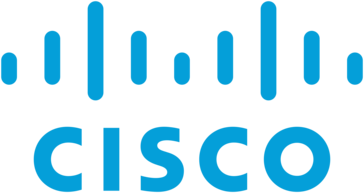 Cisco Secure Endpoint
and MongoDB integration
Cisco Secure Endpoint
and MongoDB integration Carbon Black
and MongoDB integration
Carbon Black
and MongoDB integration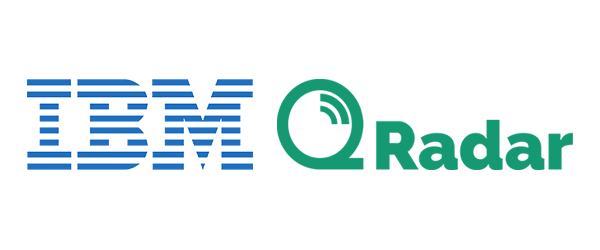 QRadar
and MongoDB integration
QRadar
and MongoDB integration Cisco Umbrella
and MongoDB integration
Cisco Umbrella
and MongoDB integration Kibana
and MongoDB integration
Kibana
and MongoDB integration Fortinet FortiGate
and MongoDB integration
Fortinet FortiGate
and MongoDB integration Imperva WAF
and MongoDB integration
Imperva WAF
and MongoDB integration MIST
and MongoDB integration
MIST
and MongoDB integration Sekoia
and MongoDB integration
Sekoia
and MongoDB integration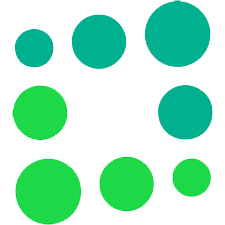 Totango
and MongoDB integration
Totango
and MongoDB integration SMS Magic
and MongoDB integration
SMS Magic
and MongoDB integration Formstack Documents
and MongoDB integration
Formstack Documents
and MongoDB integration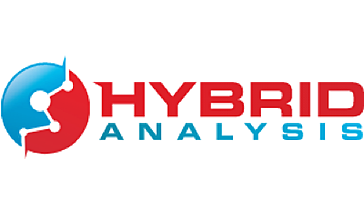 Hybrid Analysis
and MongoDB integration
Hybrid Analysis
and MongoDB integration IdealSpot
and MongoDB integration
IdealSpot
and MongoDB integration OpenCTI
and MongoDB integration
OpenCTI
and MongoDB integration Myphoner
and MongoDB integration
Myphoner
and MongoDB integration Trellix ePO
and MongoDB integration
Trellix ePO
and MongoDB integration Laposta
and MongoDB integration
Laposta
and MongoDB integration F5 Big-IP
and MongoDB integration
F5 Big-IP
and MongoDB integration Auth0 Management API
and MongoDB integration
Auth0 Management API
and MongoDB integration Mem
and MongoDB integration
Mem
and MongoDB integration Gumroad
and MongoDB integration
Gumroad
and MongoDB integration Planyo Online Booking
and MongoDB integration
Planyo Online Booking
and MongoDB integration Sifter
and MongoDB integration
Sifter
and MongoDB integration ChartMogul
and MongoDB integration
ChartMogul
and MongoDB integration Radar
and MongoDB integration
Radar
and MongoDB integration Snipcart
and MongoDB integration
Snipcart
and MongoDB integration Big Data Cloud
and MongoDB integration
Big Data Cloud
and MongoDB integration Foursquare
and MongoDB integration
Foursquare
and MongoDB integration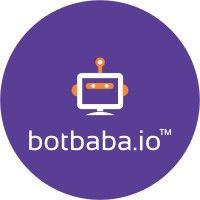 Botbaba
and MongoDB integration
Botbaba
and MongoDB integration Docparser
and MongoDB integration
Docparser
and MongoDB integration Blockchain Exchange
and MongoDB integration
Blockchain Exchange
and MongoDB integration Caspio
and MongoDB integration
Caspio
and MongoDB integration Reply.io
and MongoDB integration
Reply.io
and MongoDB integration Product Hunt
and MongoDB integration
Product Hunt
and MongoDB integration Reply
and MongoDB integration
Reply
and MongoDB integration Marketplacer
and MongoDB integration
Marketplacer
and MongoDB integration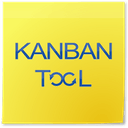 Kanban Tool
and MongoDB integration
Kanban Tool
and MongoDB integration DarkSky API
and MongoDB integration
DarkSky API
and MongoDB integration Ritekit
and MongoDB integration
Ritekit
and MongoDB integration Missive
and MongoDB integration
Missive
and MongoDB integration GoDaddy
and MongoDB integration
GoDaddy
and MongoDB integration Mailmodo
and MongoDB integration
Mailmodo
and MongoDB integration ecwid
and MongoDB integration
ecwid
and MongoDB integration iAuditor by SafetyCulture
and MongoDB integration
iAuditor by SafetyCulture
and MongoDB integration Float
and MongoDB integration
Float
and MongoDB integration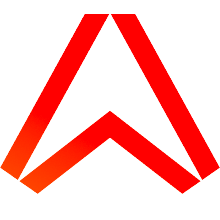 Ably
and MongoDB integration
Ably
and MongoDB integration SuiteDash
and MongoDB integration
SuiteDash
and MongoDB integration Mixpanel
and MongoDB integration
Mixpanel
and MongoDB integration Confluence
and MongoDB integration
Confluence
and MongoDB integration Handwrytten
and MongoDB integration
Handwrytten
and MongoDB integration Formdesk
and MongoDB integration
Formdesk
and MongoDB integration Workast
and MongoDB integration
Workast
and MongoDB integration Canvas
and MongoDB integration
Canvas
and MongoDB integration Nozbe Teams
and MongoDB integration
Nozbe Teams
and MongoDB integration Klaviyo
and MongoDB integration
Klaviyo
and MongoDB integration Landbot
and MongoDB integration
Landbot
and MongoDB integration ApiFlash
and MongoDB integration
ApiFlash
and MongoDB integration Nusii Proposals
and MongoDB integration
Nusii Proposals
and MongoDB integration Papyrs
and MongoDB integration
Papyrs
and MongoDB integration Cloud Convert
and MongoDB integration
Cloud Convert
and MongoDB integration Daffy
and MongoDB integration
Daffy
and MongoDB integration Verifalia
and MongoDB integration
Verifalia
and MongoDB integration Spondyr
and MongoDB integration
Spondyr
and MongoDB integration Survicate
and MongoDB integration
Survicate
and MongoDB integration Tilda
and MongoDB integration
Tilda
and MongoDB integration Unisender
and MongoDB integration
Unisender
and MongoDB integration Pinterest
and MongoDB integration
Pinterest
and MongoDB integration Chatrace
and MongoDB integration
Chatrace
and MongoDB integration Snapdocs
and MongoDB integration
Snapdocs
and MongoDB integration ChargeOver
and MongoDB integration
ChargeOver
and MongoDB integration Mav
and MongoDB integration
Mav
and MongoDB integration Headless Testing
and MongoDB integration
Headless Testing
and MongoDB integration AdRoll
and MongoDB integration
AdRoll
and MongoDB integration Docupilot
and MongoDB integration
Docupilot
and MongoDB integration Alchemy
and MongoDB integration
Alchemy
and MongoDB integration Gender API
and MongoDB integration
Gender API
and MongoDB integration Gitea
and MongoDB integration
Gitea
and MongoDB integration Imgur
and MongoDB integration
Imgur
and MongoDB integration Crisp
and MongoDB integration
Crisp
and MongoDB integration Occasion
and MongoDB integration
Occasion
and MongoDB integration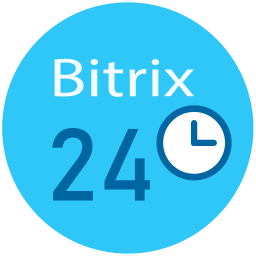 Bitrix24
and MongoDB integration
Bitrix24
and MongoDB integration Zoho Desk
and MongoDB integration
Zoho Desk
and MongoDB integration ShipStation
and MongoDB integration
ShipStation
and MongoDB integration Bandwidth
and MongoDB integration
Bandwidth
and MongoDB integration RAWG Video Games Database
and MongoDB integration
RAWG Video Games Database
and MongoDB integration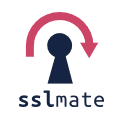 SSLMate — Cert Spotter API
and MongoDB integration
SSLMate — Cert Spotter API
and MongoDB integration Hugging Face
and MongoDB integration
Hugging Face
and MongoDB integration WuBook RateChecker
and MongoDB integration
WuBook RateChecker
and MongoDB integration Linkish
and MongoDB integration
Linkish
and MongoDB integration Simplero
and MongoDB integration
Simplero
and MongoDB integration Accredible
and MongoDB integration
Accredible
and MongoDB integration TRIGGERcmd
and MongoDB integration
TRIGGERcmd
and MongoDB integration TinyURL
and MongoDB integration
TinyURL
and MongoDB integration Let's Enhance
and MongoDB integration
Let's Enhance
and MongoDB integration Project Bubble (ProProfs Project)
and MongoDB integration
Project Bubble (ProProfs Project)
and MongoDB integration Gatekeeper
and MongoDB integration
Gatekeeper
and MongoDB integration Benchmark Email
and MongoDB integration
Benchmark Email
and MongoDB integration ScrapeNinja
and MongoDB integration
ScrapeNinja
and MongoDB integration Dokan
and MongoDB integration
Dokan
and MongoDB integration Fluent Support
and MongoDB integration
Fluent Support
and MongoDB integration Miestro
and MongoDB integration
Miestro
and MongoDB integration Giphy
and MongoDB integration
Giphy
and MongoDB integration SimpleHash
and MongoDB integration
SimpleHash
and MongoDB integration Harry Potter API
and MongoDB integration
Harry Potter API
and MongoDB integration Trengo
and MongoDB integration
Trengo
and MongoDB integration BunnyCDN
and MongoDB integration
BunnyCDN
and MongoDB integration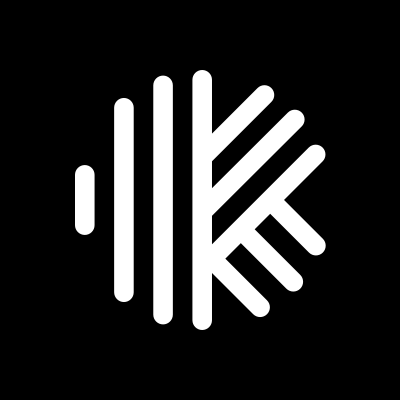 Karbon
and MongoDB integration
Karbon
and MongoDB integration WebinarJam
and MongoDB integration
WebinarJam
and MongoDB integration VivifyScrum
and MongoDB integration
VivifyScrum
and MongoDB integration SportsData
and MongoDB integration
SportsData
and MongoDB integration Amilia
and MongoDB integration
Amilia
and MongoDB integration PDFMonkey
and MongoDB integration
PDFMonkey
and MongoDB integration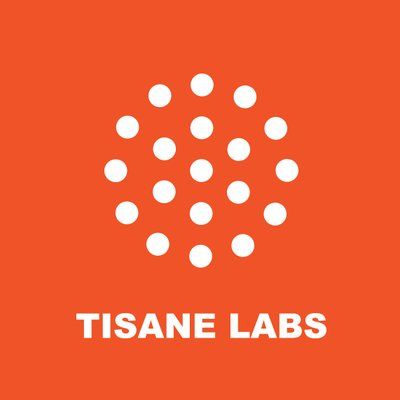 Tisane Labs
and MongoDB integration
Tisane Labs
and MongoDB integration Smaily
and MongoDB integration
Smaily
and MongoDB integration Unbounce
and MongoDB integration
Unbounce
and MongoDB integration WOXO
and MongoDB integration
WOXO
and MongoDB integration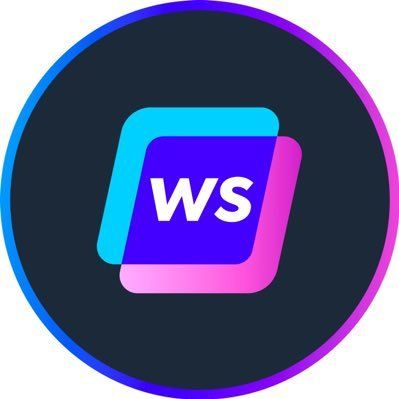 Writesonic
and MongoDB integration
Writesonic
and MongoDB integration Instabot
and MongoDB integration
Instabot
and MongoDB integration Active Trail
and MongoDB integration
Active Trail
and MongoDB integration Nightfall.ai
and MongoDB integration
Nightfall.ai
and MongoDB integration Teamgate
and MongoDB integration
Teamgate
and MongoDB integration Launch27
and MongoDB integration
Launch27
and MongoDB integration Datarobot
and MongoDB integration
Datarobot
and MongoDB integration Botstar
and MongoDB integration
Botstar
and MongoDB integration InfluxDB Cloud
and MongoDB integration
InfluxDB Cloud
and MongoDB integration Linode
and MongoDB integration
Linode
and MongoDB integration UpKeep
and MongoDB integration
UpKeep
and MongoDB integration Thankster
and MongoDB integration
Thankster
and MongoDB integration Mux
and MongoDB integration
Mux
and MongoDB integration Gravity Forms
and MongoDB integration
Gravity Forms
and MongoDB integration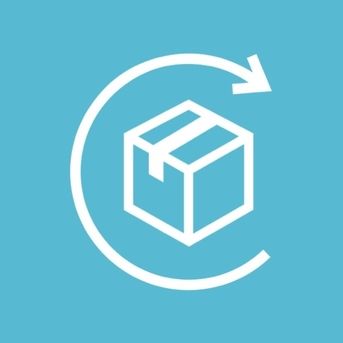 ReCharge
and MongoDB integration
ReCharge
and MongoDB integration Teamdeck
and MongoDB integration
Teamdeck
and MongoDB integration Supportivekoala
and MongoDB integration
Supportivekoala
and MongoDB integration Short.io
and MongoDB integration
Short.io
and MongoDB integration ClickSend SMS
and MongoDB integration
ClickSend SMS
and MongoDB integration Zoho Books
and MongoDB integration
Zoho Books
and MongoDB integration IdealPostcodes
and MongoDB integration
IdealPostcodes
and MongoDB integration Brex
and MongoDB integration
Brex
and MongoDB integration Metatext.AI Inference API
and MongoDB integration
Metatext.AI Inference API
and MongoDB integration Google Cloud
and MongoDB integration
Google Cloud
and MongoDB integration ConvertAPI
and MongoDB integration
ConvertAPI
and MongoDB integration Klazify
and MongoDB integration
Klazify
and MongoDB integration Mx Toolbox
and MongoDB integration
Mx Toolbox
and MongoDB integration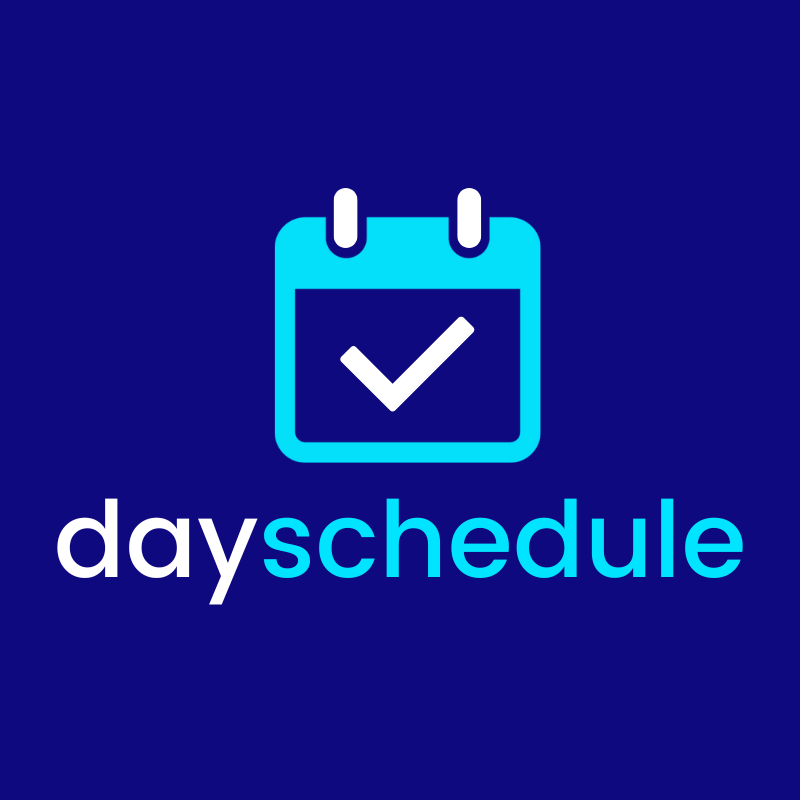 DaySchedule
and MongoDB integration
DaySchedule
and MongoDB integration Dock Certs
and MongoDB integration
Dock Certs
and MongoDB integration Reverse Contact
and MongoDB integration
Reverse Contact
and MongoDB integration WebScraper.IO
and MongoDB integration
WebScraper.IO
and MongoDB integration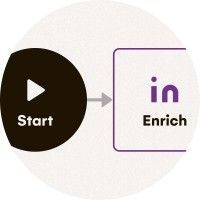 LaGrowthMachine
and MongoDB integration
LaGrowthMachine
and MongoDB integration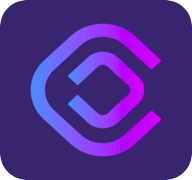 Cloudlayer
and MongoDB integration
Cloudlayer
and MongoDB integration Free Dictionary
and MongoDB integration
Free Dictionary
and MongoDB integration DeTrack
and MongoDB integration
DeTrack
and MongoDB integration Guru
and MongoDB integration
Guru
and MongoDB integration GoCanvas
and MongoDB integration
GoCanvas
and MongoDB integration SurveySparrow
and MongoDB integration
SurveySparrow
and MongoDB integration quentn
and MongoDB integration
quentn
and MongoDB integration Mailify
and MongoDB integration
Mailify
and MongoDB integration Pipefy
and MongoDB integration
Pipefy
and MongoDB integration Sellix
and MongoDB integration
Sellix
and MongoDB integration Crowdin
and MongoDB integration
Crowdin
and MongoDB integration Badger Maps
and MongoDB integration
Badger Maps
and MongoDB integration TD Ameritrade
and MongoDB integration
TD Ameritrade
and MongoDB integration ShipHero
and MongoDB integration
ShipHero
and MongoDB integration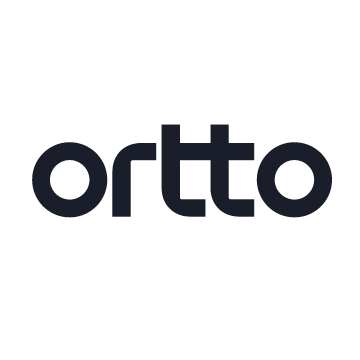 Ortto
and MongoDB integration
Ortto
and MongoDB integration Yodiz
and MongoDB integration
Yodiz
and MongoDB integration 7todos
and MongoDB integration
7todos
and MongoDB integration 3Scribe
and MongoDB integration
3Scribe
and MongoDB integration Accelo
and MongoDB integration
Accelo
and MongoDB integration Gupshup
and MongoDB integration
Gupshup
and MongoDB integration RealPhoneValidation
and MongoDB integration
RealPhoneValidation
and MongoDB integration ISN
and MongoDB integration
ISN
and MongoDB integration Rewardful
and MongoDB integration
Rewardful
and MongoDB integration Accuranker
and MongoDB integration
Accuranker
and MongoDB integration Corsizio
and MongoDB integration
Corsizio
and MongoDB integration TextMagic
and MongoDB integration
TextMagic
and MongoDB integration Forms On Fire
and MongoDB integration
Forms On Fire
and MongoDB integration Mastodon
and MongoDB integration
Mastodon
and MongoDB integration Formcarry
and MongoDB integration
Formcarry
and MongoDB integration Patreon
and MongoDB integration
Patreon
and MongoDB integration Amazon
and MongoDB integration
Amazon
and MongoDB integration Envoy
and MongoDB integration
Envoy
and MongoDB integration Capsule
and MongoDB integration
Capsule
and MongoDB integration Formsite
and MongoDB integration
Formsite
and MongoDB integration Deepgram
and MongoDB integration
Deepgram
and MongoDB integration SimpleTexting
and MongoDB integration
SimpleTexting
and MongoDB integration SimpleKPI
and MongoDB integration
SimpleKPI
and MongoDB integration LIME Go
and MongoDB integration
LIME Go
and MongoDB integration Plecto
and MongoDB integration
Plecto
and MongoDB integration TurboHire
and MongoDB integration
TurboHire
and MongoDB integration TalentLMS
and MongoDB integration
TalentLMS
and MongoDB integration Salesmsg
and MongoDB integration
Salesmsg
and MongoDB integration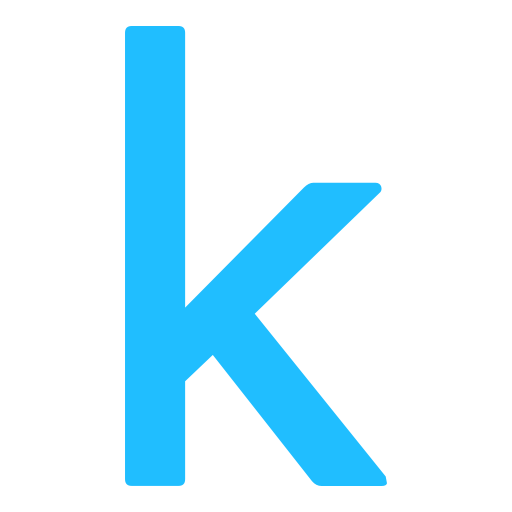 Kaggle
and MongoDB integration
Kaggle
and MongoDB integration Switchboard
and MongoDB integration
Switchboard
and MongoDB integration LiveAgent
and MongoDB integration
LiveAgent
and MongoDB integration KnowBe4
and MongoDB integration
KnowBe4
and MongoDB integration Mews
and MongoDB integration
Mews
and MongoDB integration Acquire
and MongoDB integration
Acquire
and MongoDB integration Textgain
and MongoDB integration
Textgain
and MongoDB integration PaperForm
and MongoDB integration
PaperForm
and MongoDB integration Zonka Feedback
and MongoDB integration
Zonka Feedback
and MongoDB integration Cloze
and MongoDB integration
Cloze
and MongoDB integration Platform.ly
and MongoDB integration
Platform.ly
and MongoDB integration College Football Data
and MongoDB integration
College Football Data
and MongoDB integration Qualaroo
and MongoDB integration
Qualaroo
and MongoDB integration FullContact
and MongoDB integration
FullContact
and MongoDB integration HUB Planner
and MongoDB integration
HUB Planner
and MongoDB integration Mailersend
and MongoDB integration
Mailersend
and MongoDB integration MoonClerk
and MongoDB integration
MoonClerk
and MongoDB integration Sales Simplify
and MongoDB integration
Sales Simplify
and MongoDB integration Signaturit
and MongoDB integration
Signaturit
and MongoDB integration Omniconvert
and MongoDB integration
Omniconvert
and MongoDB integration Focuster
and MongoDB integration
Focuster
and MongoDB integration HeySummit
and MongoDB integration
HeySummit
and MongoDB integration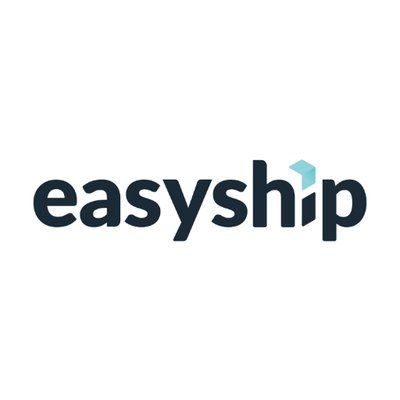 Easyship
and MongoDB integration
Easyship
and MongoDB integration Thrivecart
and MongoDB integration
Thrivecart
and MongoDB integration GetScreenshot
and MongoDB integration
GetScreenshot
and MongoDB integration Databox
and MongoDB integration
Databox
and MongoDB integration Breezy HR
and MongoDB integration
Breezy HR
and MongoDB integration Esendex
and MongoDB integration
Esendex
and MongoDB integration AirNow
and MongoDB integration
AirNow
and MongoDB integration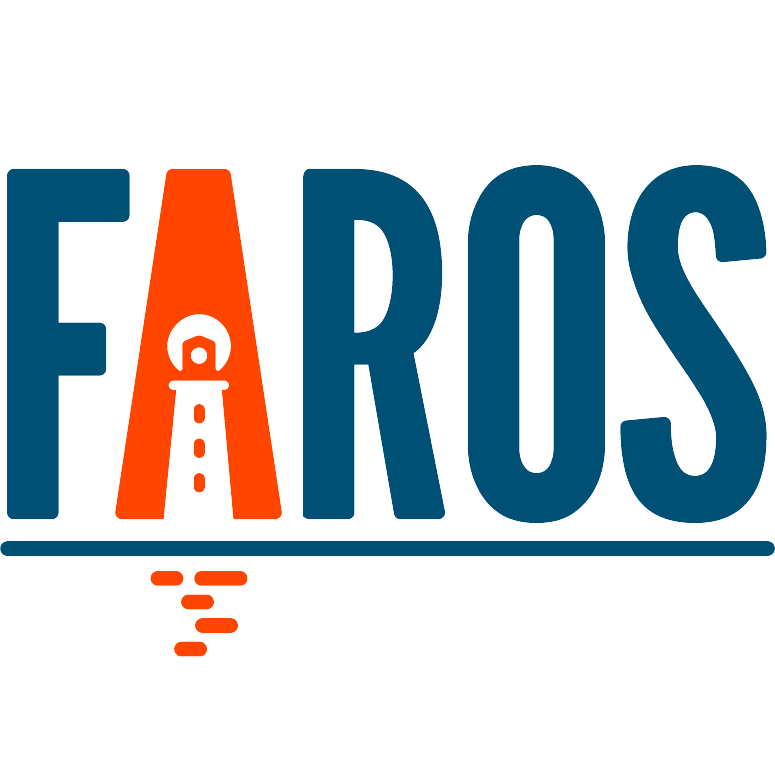 Faros
and MongoDB integration
Faros
and MongoDB integration Sierra Interactive
and MongoDB integration
Sierra Interactive
and MongoDB integration Lusha
and MongoDB integration
Lusha
and MongoDB integration Relink - URL Shortener
and MongoDB integration
Relink - URL Shortener
and MongoDB integration Oxylabs
and MongoDB integration
Oxylabs
and MongoDB integration Planview Leankit
and MongoDB integration
Planview Leankit
and MongoDB integration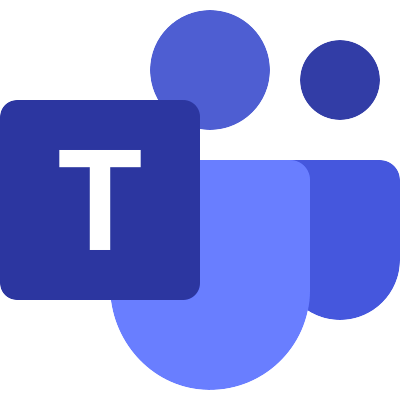 Microsoft Teams Admin
and MongoDB integration
Microsoft Teams Admin
and MongoDB integration Cisco Webex
and MongoDB integration
Cisco Webex
and MongoDB integration LeadBoxer
and MongoDB integration
LeadBoxer
and MongoDB integration Pivotal Tracker
and MongoDB integration
Pivotal Tracker
and MongoDB integration Chargify
and MongoDB integration
Chargify
and MongoDB integration SwagUp
and MongoDB integration
SwagUp
and MongoDB integration imgbb
and MongoDB integration
imgbb
and MongoDB integration SmartReach
and MongoDB integration
SmartReach
and MongoDB integration Freshping
and MongoDB integration
Freshping
and MongoDB integration MoonMail
and MongoDB integration
MoonMail
and MongoDB integration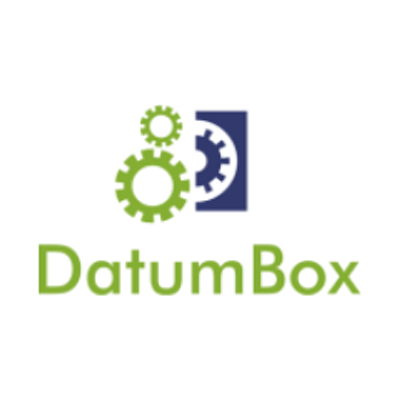 Datumbox
and MongoDB integration
Datumbox
and MongoDB integration SMS-IT
and MongoDB integration
SMS-IT
and MongoDB integration Sitecreator.io
and MongoDB integration
Sitecreator.io
and MongoDB integration DigiCert
and MongoDB integration
DigiCert
and MongoDB integration awork
and MongoDB integration
awork
and MongoDB integration CalendarHero
and MongoDB integration
CalendarHero
and MongoDB integration Marketing Master IO
and MongoDB integration
Marketing Master IO
and MongoDB integration WatchSignals
and MongoDB integration
WatchSignals
and MongoDB integration RD Station CRM
and MongoDB integration
RD Station CRM
and MongoDB integration Workboard
and MongoDB integration
Workboard
and MongoDB integration Firmao
and MongoDB integration
Firmao
and MongoDB integration SnatchBot
and MongoDB integration
SnatchBot
and MongoDB integration Airbrake
and MongoDB integration
Airbrake
and MongoDB integration Fitbit
and MongoDB integration
Fitbit
and MongoDB integration Google AI Studio (Gemini)
and MongoDB integration
Google AI Studio (Gemini)
and MongoDB integration Grain
and MongoDB integration
Grain
and MongoDB integration Fathom
and MongoDB integration
Fathom
and MongoDB integration Personal AI
and MongoDB integration
Personal AI
and MongoDB integration Descript
and MongoDB integration
Descript
and MongoDB integration Synthesia
and MongoDB integration
Synthesia
and MongoDB integration AnnounceKit
and MongoDB integration
AnnounceKit
and MongoDB integration Read AI
and MongoDB integration
Read AI
and MongoDB integration TrackVia
and MongoDB integration
TrackVia
and MongoDB integration Supernormal
and MongoDB integration
Supernormal
and MongoDB integration Seamless AI
and MongoDB integration
Seamless AI
and MongoDB integration HeyGen
and MongoDB integration
HeyGen
and MongoDB integration TalkNotes
and MongoDB integration
TalkNotes
and MongoDB integration Relevance AI
and MongoDB integration
Relevance AI
and MongoDB integration Browserless
and MongoDB integration
Browserless
and MongoDB integration Stammer.ai
and MongoDB integration
Stammer.ai
and MongoDB integration Wonderchat
and MongoDB integration
Wonderchat
and MongoDB integration Airparser
and MongoDB integration
Airparser
and MongoDB integration Voicit
and MongoDB integration
Voicit
and MongoDB integration Kraftful
and MongoDB integration
Kraftful
and MongoDB integration Dante AI
and MongoDB integration
Dante AI
and MongoDB integration AccurAI
and MongoDB integration
AccurAI
and MongoDB integration CustomerIQ
and MongoDB integration
CustomerIQ
and MongoDB integration Enterpret
and MongoDB integration
Enterpret
and MongoDB integration Blaze
and MongoDB integration
Blaze
and MongoDB integration Vowel
and MongoDB integration
Vowel
and MongoDB integration Google Vertex AI
and MongoDB integration
Google Vertex AI
and MongoDB integration echowin
and MongoDB integration
echowin
and MongoDB integration Superpowered
and MongoDB integration
Superpowered
and MongoDB integration FastBots
and MongoDB integration
FastBots
and MongoDB integration Predis.ai
and MongoDB integration
Predis.ai
and MongoDB integration Botsonic
and MongoDB integration
Botsonic
and MongoDB integration My AskAI
and MongoDB integration
My AskAI
and MongoDB integration Sembly AI
and MongoDB integration
Sembly AI
and MongoDB integration Chatsonic
and MongoDB integration
Chatsonic
and MongoDB integration Jasper
and MongoDB integration
Jasper
and MongoDB integration Wondercraft
and MongoDB integration
Wondercraft
and MongoDB integration Botifier
and MongoDB integration
Botifier
and MongoDB integration Nyota
and MongoDB integration
Nyota
and MongoDB integration ParsePrompt
and MongoDB integration
ParsePrompt
and MongoDB integration Brain Pod AI
and MongoDB integration
Brain Pod AI
and MongoDB integration Gali
and MongoDB integration
Gali
and MongoDB integration Brandblast
and MongoDB integration
Brandblast
and MongoDB integration Cradl AI
and MongoDB integration
Cradl AI
and MongoDB integration Droxy
and MongoDB integration
Droxy
and MongoDB integration EmbedAI
and MongoDB integration
EmbedAI
and MongoDB integration DialZara
and MongoDB integration
DialZara
and MongoDB integration Nyckel
and MongoDB integration
Nyckel
and MongoDB integration Alphamoon
and MongoDB integration
Alphamoon
and MongoDB integration The Leap
and MongoDB integration
The Leap
and MongoDB integration OmniMind
and MongoDB integration
OmniMind
and MongoDB integration Convi
and MongoDB integration
Convi
and MongoDB integration ChatMasters
and MongoDB integration
ChatMasters
and MongoDB integration ThoughtfulGPT
and MongoDB integration
ThoughtfulGPT
and MongoDB integration Simpleem
and MongoDB integration
Simpleem
and MongoDB integration GPTea
and MongoDB integration
GPTea
and MongoDB integration Teknoir
and MongoDB integration
Teknoir
and MongoDB integration CraftDraft
and MongoDB integration
CraftDraft
and MongoDB integration Faraday
and MongoDB integration
Faraday
and MongoDB integration Xtractly
and MongoDB integration
Xtractly
and MongoDB integration DocuWriter
and MongoDB integration
DocuWriter
and MongoDB integration Autobound
and MongoDB integration
Autobound
and MongoDB integration RoboResponseAI
and MongoDB integration
RoboResponseAI
and MongoDB integration WizyChat
and MongoDB integration
WizyChat
and MongoDB integration Salesmaa
and MongoDB integration
Salesmaa
and MongoDB integration Diddo AI
and MongoDB integration
Diddo AI
and MongoDB integration Nuclia
and MongoDB integration
Nuclia
and MongoDB integration Knack
and MongoDB integration
Knack
and MongoDB integration bot9
and MongoDB integration
bot9
and MongoDB integration Sharly AI
and MongoDB integration
Sharly AI
and MongoDB integration Libraria
and MongoDB integration
Libraria
and MongoDB integration Empsing
and MongoDB integration
Empsing
and MongoDB integration Cloozo
and MongoDB integration
Cloozo
and MongoDB integration Google Tables
and MongoDB integration
Google Tables
and MongoDB integration Maverick
and MongoDB integration
Maverick
and MongoDB integration SimpleLocalize
and MongoDB integration
SimpleLocalize
and MongoDB integration InfoLobby
and MongoDB integration
InfoLobby
and MongoDB integration AITable.ai
and MongoDB integration
AITable.ai
and MongoDB integration Ninox
and MongoDB integration
Ninox
and MongoDB integration Marcom Robot
and MongoDB integration
Marcom Robot
and MongoDB integration Fusioo
and MongoDB integration
Fusioo
and MongoDB integration TiDB Cloud
and MongoDB integration
TiDB Cloud
and MongoDB integration Clarifai
and MongoDB integration
Clarifai
and MongoDB integration On2Air
and MongoDB integration
On2Air
and MongoDB integration Autom
and MongoDB integration
Autom
and MongoDB integration Trevor.io
and MongoDB integration
Trevor.io
and MongoDB integration LaunchDarkly
and MongoDB integration
LaunchDarkly
and MongoDB integration Grid
and MongoDB integration
Grid
and MongoDB integration Solve Data
and MongoDB integration
Solve Data
and MongoDB integration IP2Location
and MongoDB integration
IP2Location
and MongoDB integration ScreenshotOne
and MongoDB integration
ScreenshotOne
and MongoDB integration Pitchly
and MongoDB integration
Pitchly
and MongoDB integration ApptiveGrid
and MongoDB integration
ApptiveGrid
and MongoDB integration IndustrySelect
and MongoDB integration
IndustrySelect
and MongoDB integration Persio
and MongoDB integration
Persio
and MongoDB integration Omeda
and MongoDB integration
Omeda
and MongoDB integration Apify
and MongoDB integration
Apify
and MongoDB integration Passcreator
and MongoDB integration
Passcreator
and MongoDB integration Sales.Rocks
and MongoDB integration
Sales.Rocks
and MongoDB integration HasData
and MongoDB integration
HasData
and MongoDB integration Lighthouse
and MongoDB integration
Lighthouse
and MongoDB integration Ipregistry
and MongoDB integration
Ipregistry
and MongoDB integration Gleap
and MongoDB integration
Gleap
and MongoDB integration ZenRows
and MongoDB integration
ZenRows
and MongoDB integration Cloudinary
and MongoDB integration
Cloudinary
and MongoDB integration Keygen
and MongoDB integration
Keygen
and MongoDB integration Data Soap
and MongoDB integration
Data Soap
and MongoDB integration TestMonitor
and MongoDB integration
TestMonitor
and MongoDB integration BugHerd
and MongoDB integration
BugHerd
and MongoDB integration Localazy
and MongoDB integration
Localazy
and MongoDB integration BigML
and MongoDB integration
BigML
and MongoDB integration Bugpilot
and MongoDB integration
Bugpilot
and MongoDB integration Transifex
and MongoDB integration
Transifex
and MongoDB integration Rootly
and MongoDB integration
Rootly
and MongoDB integration Ybug
and MongoDB integration
Ybug
and MongoDB integration Cryptolens
and MongoDB integration
Cryptolens
and MongoDB integration Venly
and MongoDB integration
Venly
and MongoDB integration Lokalise
and MongoDB integration
Lokalise
and MongoDB integration BugBug
and MongoDB integration
BugBug
and MongoDB integration KEYZY
and MongoDB integration
KEYZY
and MongoDB integration BrowserStack
and MongoDB integration
BrowserStack
and MongoDB integration Kadoa
and MongoDB integration
Kadoa
and MongoDB integration Ideta
and MongoDB integration
Ideta
and MongoDB integration Alerty
and MongoDB integration
Alerty
and MongoDB integration Bugfender
and MongoDB integration
Bugfender
and MongoDB integration Impira
and MongoDB integration
Impira
and MongoDB integration Tuulio
and MongoDB integration
Tuulio
and MongoDB integration One AI
and MongoDB integration
One AI
and MongoDB integration Relysia
and MongoDB integration
Relysia
and MongoDB integration YepCode
and MongoDB integration
YepCode
and MongoDB integration Robolytix
and MongoDB integration
Robolytix
and MongoDB integration Flotiq
and MongoDB integration
Flotiq
and MongoDB integration NMKR
and MongoDB integration
NMKR
and MongoDB integration Pulsetic
and MongoDB integration
Pulsetic
and MongoDB integration Spike
and MongoDB integration
Spike
and MongoDB integration LambdaTest
and MongoDB integration
LambdaTest
and MongoDB integration Chekhub
and MongoDB integration
Chekhub
and MongoDB integration Evolphin Zoom
and MongoDB integration
Evolphin Zoom
and MongoDB integration Dasha
and MongoDB integration
Dasha
and MongoDB integration Starton
and MongoDB integration
Starton
and MongoDB integration ConfigCat
and MongoDB integration
ConfigCat
and MongoDB integration Phrase
and MongoDB integration
Phrase
and MongoDB integration LoginRadius
and MongoDB integration
LoginRadius
and MongoDB integration Diffy
and MongoDB integration
Diffy
and MongoDB integration Toket
and MongoDB integration
Toket
and MongoDB integration Flagship
and MongoDB integration
Flagship
and MongoDB integration Eartho
and MongoDB integration
Eartho
and MongoDB integration Lucidchart
and MongoDB integration
Lucidchart
and MongoDB integration CloudBoost
and MongoDB integration
CloudBoost
and MongoDB integration Cloud 66
and MongoDB integration
Cloud 66
and MongoDB integration Rollbar
and MongoDB integration
Rollbar
and MongoDB integration UptimeToolbox
and MongoDB integration
UptimeToolbox
and MongoDB integration ParseHub
and MongoDB integration
ParseHub
and MongoDB integration Tierion
and MongoDB integration
Tierion
and MongoDB integration BLOOCK
and MongoDB integration
BLOOCK
and MongoDB integration CloudShare
and MongoDB integration
CloudShare
and MongoDB integration Cronly
and MongoDB integration
Cronly
and MongoDB integration DevCycle
and MongoDB integration
DevCycle
and MongoDB integration Engati
and MongoDB integration
Engati
and MongoDB integration Instabug
and MongoDB integration
Instabug
and MongoDB integration OffAlerts
and MongoDB integration
OffAlerts
and MongoDB integration BugShot
and MongoDB integration
BugShot
and MongoDB integration ncScale
and MongoDB integration
ncScale
and MongoDB integration Evervault
and MongoDB integration
Evervault
and MongoDB integration TextKit
and MongoDB integration
TextKit
and MongoDB integration BugReplay
and MongoDB integration
BugReplay
and MongoDB integration AltText.ai
and MongoDB integration
AltText.ai
and MongoDB integration Eden AI
and MongoDB integration
Eden AI
and MongoDB integration PromptHub
and MongoDB integration
PromptHub
and MongoDB integration Claude
and MongoDB integration
Claude
and MongoDB integration Adobe
and MongoDB integration
Adobe
and MongoDB integration IntakeQ
and MongoDB integration
IntakeQ
and MongoDB integration Codefresh
and MongoDB integration
Codefresh
and MongoDB integration Apiary
and MongoDB integration
Apiary
and MongoDB integration Jama
and MongoDB integration
Jama
and MongoDB integration Growbots
and MongoDB integration
Growbots
and MongoDB integration Buildkite
and MongoDB integration
Buildkite
and MongoDB integration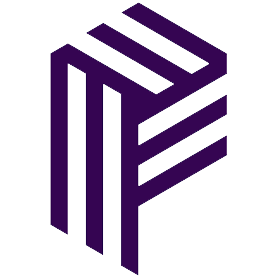 Pusher
and MongoDB integration
Pusher
and MongoDB integration Botium Box
and MongoDB integration
Botium Box
and MongoDB integration Domo
and MongoDB integration
Domo
and MongoDB integration Code Climate
and MongoDB integration
Code Climate
and MongoDB integration TextCortex AI
and MongoDB integration
TextCortex AI
and MongoDB integration The Customer Factor
and MongoDB integration
The Customer Factor
and MongoDB integration Timetonic
and MongoDB integration
Timetonic
and MongoDB integration elmah.io
and MongoDB integration
elmah.io
and MongoDB integration PractiTest
and MongoDB integration
PractiTest
and MongoDB integration Prospe AI
and MongoDB integration
Prospe AI
and MongoDB integration Clappia
and MongoDB integration
Clappia
and MongoDB integration Qualys
and MongoDB integration
Qualys
and MongoDB integration Leadpops
and MongoDB integration
Leadpops
and MongoDB integration Nanonets OCR
and MongoDB integration
Nanonets OCR
and MongoDB integration Invoiced
and MongoDB integration
Invoiced
and MongoDB integration OPN (formerly Omise)
and MongoDB integration
OPN (formerly Omise)
and MongoDB integration DocsBot AI
and MongoDB integration
DocsBot AI
and MongoDB integration Recorded Future
and MongoDB integration
Recorded Future
and MongoDB integration CrowdStrike
and MongoDB integration
CrowdStrike
and MongoDB integration Shuffler
and MongoDB integration
Shuffler
and MongoDB integration Malcore
and MongoDB integration
Malcore
and MongoDB integration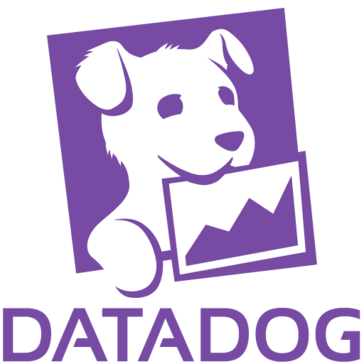 Datadog
and MongoDB integration
Datadog
and MongoDB integration Filescan
and MongoDB integration
Filescan
and MongoDB integration Iris Dfir
and MongoDB integration
Iris Dfir
and MongoDB integration Redash
and MongoDB integration
Redash
and MongoDB integration Search And Save
and MongoDB integration
Search And Save
and MongoDB integration Syncly
and MongoDB integration
Syncly
and MongoDB integration Whal3s
and MongoDB integration
Whal3s
and MongoDB integration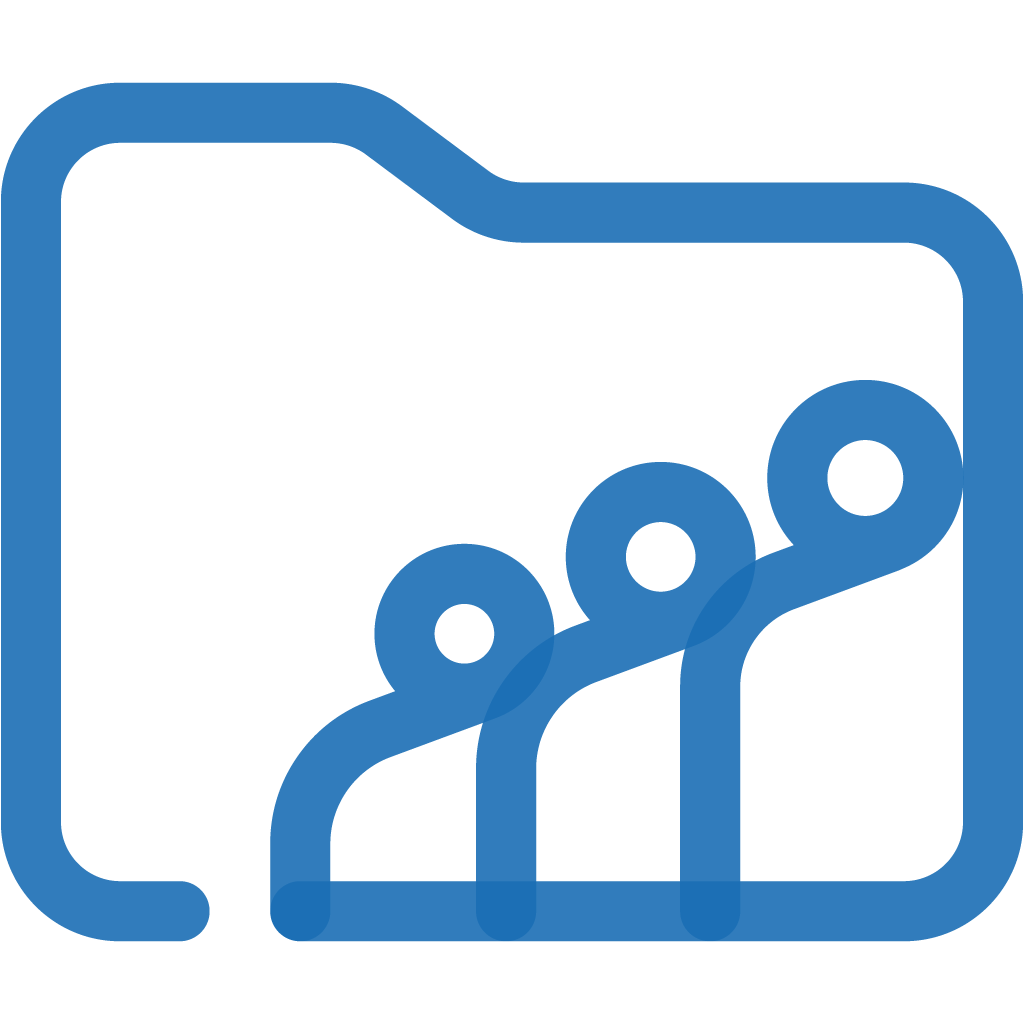 Zoho WorkDrive
and MongoDB integration
Zoho WorkDrive
and MongoDB integration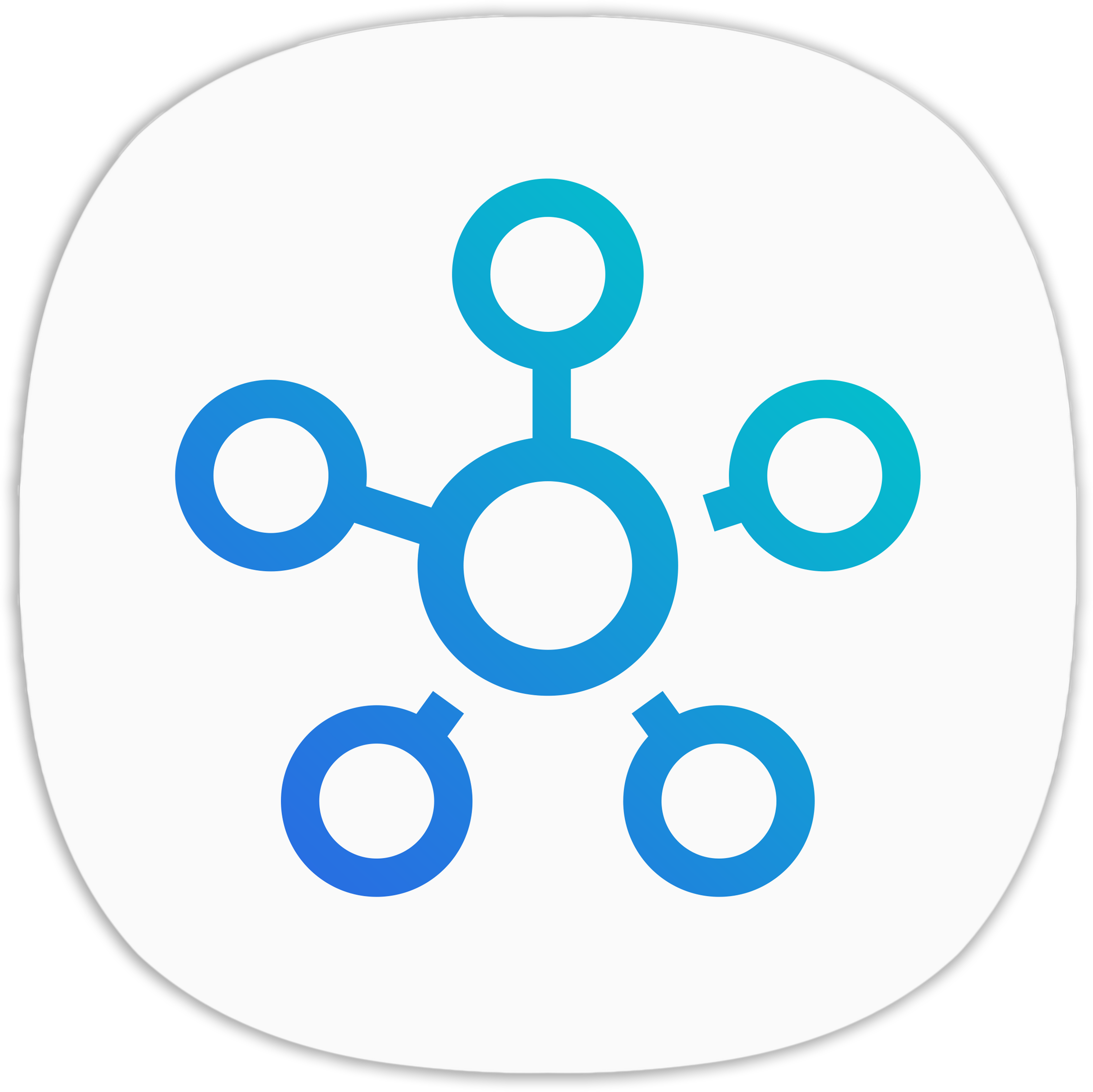 Samsung SmartThings
and MongoDB integration
Samsung SmartThings
and MongoDB integration Cisco Meraki
and MongoDB integration
Cisco Meraki
and MongoDB integration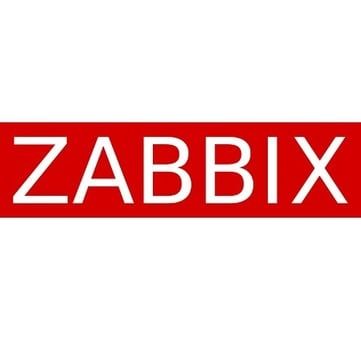 Zabbix
and MongoDB integration
Zabbix
and MongoDB integration Roboflow
and MongoDB integration
Roboflow
and MongoDB integration AlienVault
and MongoDB integration
AlienVault
and MongoDB integration Microsoft Entra ID (Azure Active Directory)
and MongoDB integration
Microsoft Entra ID (Azure Active Directory)
and MongoDB integration VirusTotal
and MongoDB integration
VirusTotal
and MongoDB integration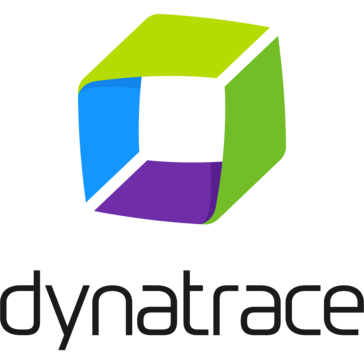 Dynatrace
and MongoDB integration
Dynatrace
and MongoDB integration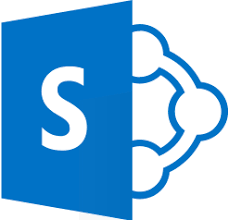 Sharepoint
and MongoDB integration
Sharepoint
and MongoDB integration Rapid7 InsightVM
and MongoDB integration
Rapid7 InsightVM
and MongoDB integration Abstract
and MongoDB integration
Abstract
and MongoDB integration AbuselPDB
and MongoDB integration
AbuselPDB
and MongoDB integration AssemblyAI
and MongoDB integration
AssemblyAI
and MongoDB integration Better Proposals
and MongoDB integration
Better Proposals
and MongoDB integration Big Cartel
and MongoDB integration
Big Cartel
and MongoDB integration BrandMentions
and MongoDB integration
BrandMentions
and MongoDB integration CleverReach
and MongoDB integration
CleverReach
and MongoDB integration Crossmint
and MongoDB integration
Crossmint
and MongoDB integration CrowdPower
and MongoDB integration
CrowdPower
and MongoDB integration Outscraper
and MongoDB integration
Outscraper
and MongoDB integration Browse AI
and MongoDB integration
Browse AI
and MongoDB integration Calendly
and MongoDB integration
Calendly
and MongoDB integration Chaindesk
and MongoDB integration
Chaindesk
and MongoDB integration Chatbase
and MongoDB integration
Chatbase
and MongoDB integration Waveline Extract
and MongoDB integration
Waveline Extract
and MongoDB integration Chatling
and MongoDB integration
Chatling
and MongoDB integration Confluent
and MongoDB integration
Confluent
and MongoDB integration Databricks
and MongoDB integration
Databricks
and MongoDB integration Draftable
and MongoDB integration
Draftable
and MongoDB integration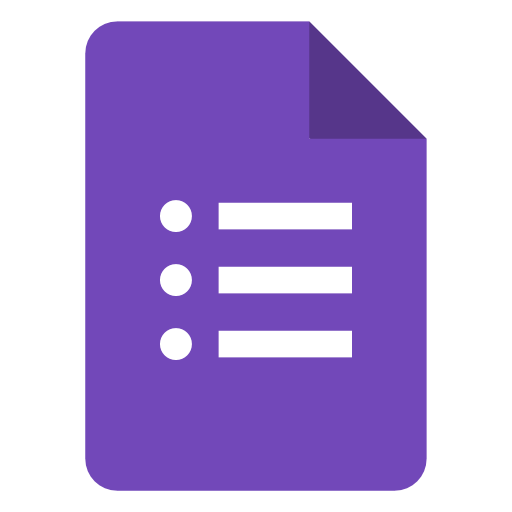 Google Forms
and MongoDB integration
Google Forms
and MongoDB integration Cody
and MongoDB integration
Cody
and MongoDB integration Copy.ai
and MongoDB integration
Copy.ai
and MongoDB integration OCRSpace
and MongoDB integration
OCRSpace
and MongoDB integration Order Desk
and MongoDB integration
Order Desk
and MongoDB integration Enormail
and MongoDB integration
Enormail
and MongoDB integration Helcim
and MongoDB integration
Helcim
and MongoDB integration IPInfo
and MongoDB integration
IPInfo
and MongoDB integration SignRequest
and MongoDB integration
SignRequest
and MongoDB integration Greip
and MongoDB integration
Greip
and MongoDB integration Hansei
and MongoDB integration
Hansei
and MongoDB integration Microsoft Dynamics 365 Business Central API
and MongoDB integration
Microsoft Dynamics 365 Business Central API
and MongoDB integration Morph
and MongoDB integration
Morph
and MongoDB integration Passslot
and MongoDB integration
Passslot
and MongoDB integration Paymo
and MongoDB integration
Paymo
and MongoDB integration Pinata
and MongoDB integration
Pinata
and MongoDB integration Pinboard
and MongoDB integration
Pinboard
and MongoDB integration Pirate Weather
and MongoDB integration
Pirate Weather
and MongoDB integration Prodia
and MongoDB integration
Prodia
and MongoDB integration QuintaDB
and MongoDB integration
QuintaDB
and MongoDB integration Rapid7 Insight Platform
and MongoDB integration
Rapid7 Insight Platform
and MongoDB integration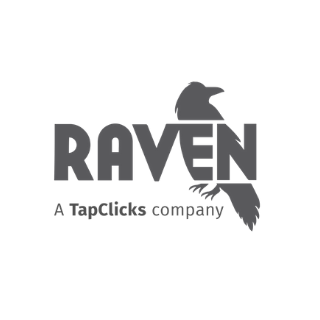 Raven Tools
and MongoDB integration
Raven Tools
and MongoDB integration Route4Me
and MongoDB integration
Route4Me
and MongoDB integration Retable
and MongoDB integration
Retable
and MongoDB integration Specter
and MongoDB integration
Specter
and MongoDB integration Spydra
and MongoDB integration
Spydra
and MongoDB integration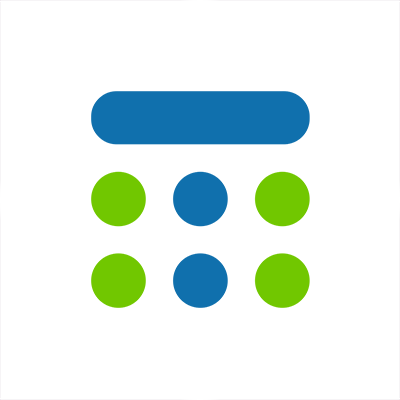 Team Up
and MongoDB integration
Team Up
and MongoDB integration Tuskr
and MongoDB integration
Tuskr
and MongoDB integration SiteSpeakAI
and MongoDB integration
SiteSpeakAI
and MongoDB integration SmartSuite
and MongoDB integration
SmartSuite
and MongoDB integration Statuscake
and MongoDB integration
Statuscake
and MongoDB integration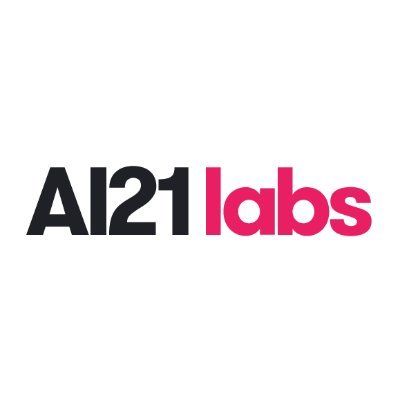 Studio by AI21 Labs
and MongoDB integration
Studio by AI21 Labs
and MongoDB integration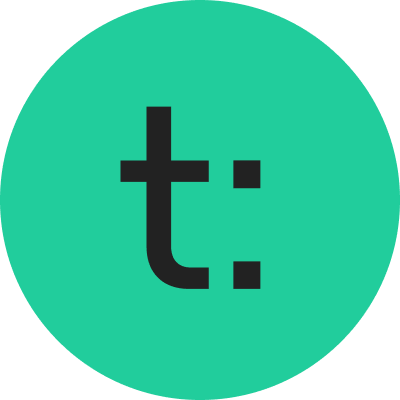 Teachable
and MongoDB integration
Teachable
and MongoDB integration Token Metrics
and MongoDB integration
Token Metrics
and MongoDB integration UserVoice
and MongoDB integration
UserVoice
and MongoDB integration Vimeo
and MongoDB integration
Vimeo
and MongoDB integration WhatConverts
and MongoDB integration
WhatConverts
and MongoDB integration Woodpecker.co
and MongoDB integration
Woodpecker.co
and MongoDB integration Ycode
and MongoDB integration
Ycode
and MongoDB integration
Connect MongoDB with your company’s tech stack and create automation workflows
How can I set up MongoDB integration in n8n?
To use MongoDB integration in n8n, start by adding the MongoDB node to your workflow. You'll need to authenticate your MongoDB account using supported authentication methods. Once connected, you can choose from the list of supported actions or make custom API calls via the HTTP Request node, for example: you can then configure the node by specifying the operation you want to perform, such as inserting or retrieving documents. Make sure to provide the necessary parameters like the database name and collection as needed. Finally, test the workflow to ensure everything is functioning as expected.
Do I need any special permissions or API keys to integrate MongoDB with n8n?
Can I combine MongoDB with other apps in n8n workflows?
What are some common use cases for MongoDB integrations with n8n?
How does n8n’s pricing model benefit me when integrating MongoDB?
qupaya technologies
@qupaya
We're using the @n8n_io cloud for our internal automation tasks since the beta started. It's awesome! Also, support is super fast and always helpful. 🤗
aaron
@acar321
in other news I installed @n8n_io tonight and holy moly it’s good
it’s compatible with EVERYTHING
Cris
Last week I automated much of the back office work for a small design studio in less than 8hrs and I am still mind-blown about it.
n8n is a game-changer and should be known by all SMBs and even enterprise companies.
